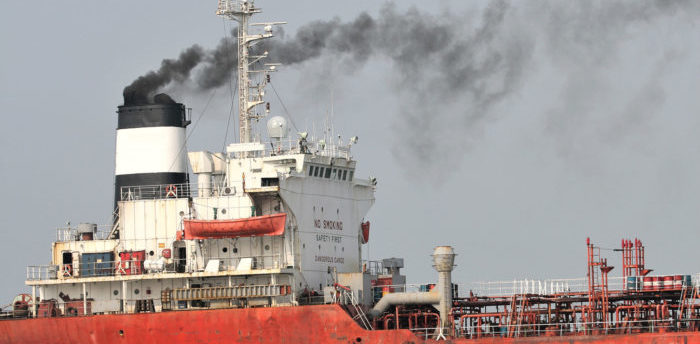At the last day of MEPC 73 on Friday, IMO adopted an amendment to support consistent implementation of the forthcoming 0.50% sulphur limit. The complementary MARPOL amendment will prohibit the carriage of non-compliant fuel oil for combustion purposes for propulsion or operation onboard – unless the ship has a scrubber fitted. The complementary amendment is expected to enter into force on 1 March 2020.
The amendment does not change in any way the entry into force date of the 0.50% limit from 1 January 2020. It is intended as an additional measure to support consistent implementation and compliance and provide a means for effective enforcement by States, particularly port State control.
The 2020 sulphur cap mandates that ships must run on fuel oil containing up to 0.5% sulphur, when the limit currently outside the four ECAs is 3.5%. (The four ECAs: the Baltic Sea area; the North Sea area; the North American area; and the United States Caribbean Sea area). Most ships are expected to utilize new blends of fuel oil which will be produced to meet the 2020 sulphur cap.
The carriage ban resulted from growing concerns amid industry associations that, as complying with low-sulphur fuels will cost ship operators money, some ships will honour the new rules when they are close to ports, but then switch to cheaper high-sulphur fuel on the open seas.
Ship implementation planning guidance approved
Additionally, to assist ship operators and owners to plan ahead for the 0.50% sulphur 2020 limit, the MEPC approved guidance on ship implementation planning. The guidance is part of a set of guidelines being developed by IMO for consistent implementation of the MARPOL regulation coming into effect from 1 January 2020.
The ship implementation planning guidance includes sections on:
- risk assessment and mitigation plan (impact of new fuels);
- fuel oil system modifications and tank cleaning (if needed);
- fuel oil capacity and segregation capability;
- procurement of compliant fuel;
- fuel oil changeover plan (conventional residual fuel oils to 0.50% sulphur compliant fuel oil); and
- documentation and reporting.
Best practice guidance approved
The MEPC also approved Guidance on best practice for fuel oil suppliers.
The Guidance on best practice for fuel oil suppliers is intended to assist fuel oil purchasers and users in assuring the quality of fuel oil delivered to and used on board ships, with respect to both compliance with the MARPOL requirements and the safe and efficient operation of the ship. The guidance pertains to aspects of the fuel oil purchase up to the loading of the purchased fuel oil on board.
Enhancing provisions on fuel oil quality and reporting of non-availability of compliant fuel oils
Following a discussion related to a proposal on gaining experience in meeting the new lower sulphur limit, the Committee invited concrete proposals to the next MEPC 74 session, in May 2019, on how to enhance the implementation of regulation 18 MARPOL Annex VI which covers fuel oil quality and availability.
On fuel oil availability, the regulation requires each Party to “take all reasonable steps to promote the availability of fuel oils which comply with this Annex and inform the Organization of the availability of compliant fuel oils in its ports and terminals“. Parties are also required to notify IMO when a ship has presented evidence of the non-availability of compliant fuel oil.
Parties to MARPOL Annex VI are urged to inform the Organization of the availability of compliant fuel oils in its ports and terminals via the IMO Global Integrated Shipping Information System (GISIS) MARPOL Annex VI module well in advance of 1 January 2020, in accordance with regulation 18.1 of MARPOL Annex VI.
The 1 January 2020 implementation date was adopted in 2008 and confirmed by IMO in October 2016. The reduction in the limit for sulphur in fuel oil used onboard ships aims at tangible health benefits, particularly for populations living close to ports and major shipping routes.




































































